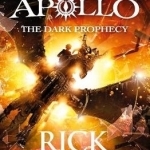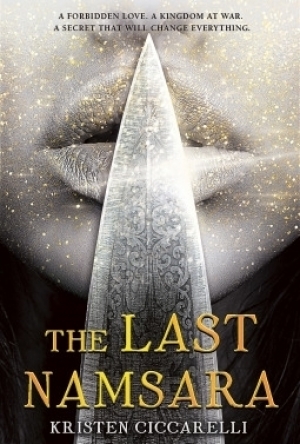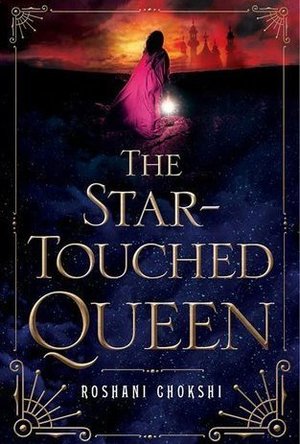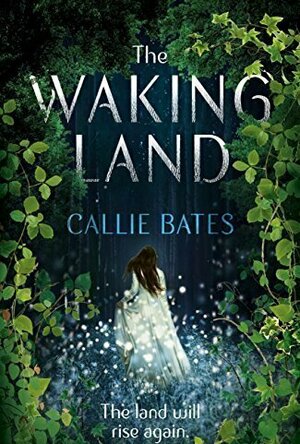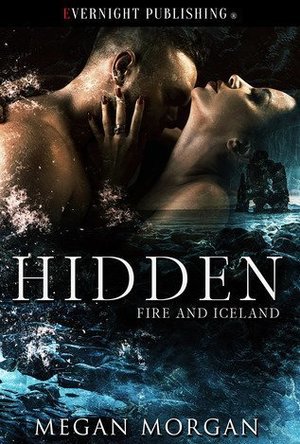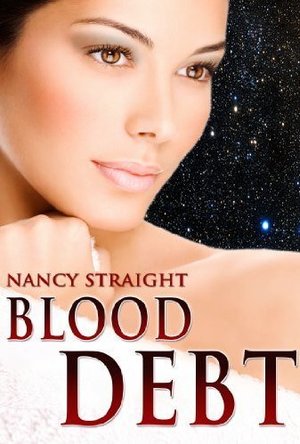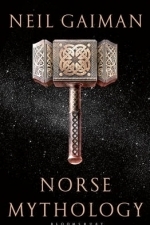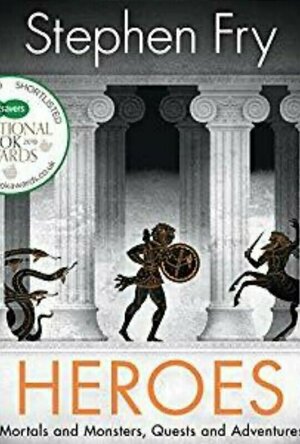Search
Kyera (8 KP) rated The Dark Prophecy in Books
Jan 31, 2018
Please read the first book in the series before delving into this one, otherwise, you will be very confused. I would recommend this book to middle grade/young adult readers who have enjoyed Rick Riordan's other novel, mythology, fantasy or action/adventure books.
It was really great to see Apollo's character continue to develop throughout the book. As time passes, he learns what it means to be human and begins to understand mortality. As a god, he was always removed from a situation - sending worthy Demi-gods to do his bidding without a care for their safety or lives. As Lester, he develops relationships with other people and learns to truly care about their wellbeing.
Although this series is called the Trials of Apollo, and Apollo himself would be quite insulted that I suggest he is not sufficiently impressive to carry this book - but there is not enough Percy Jackson. I am glad however, that there is a lot of Leo. He is hilarious and I am so happy to get to spend more time battling monsters and immortals with one of the Seven.
The endings feel like they come out of no-where, which is exactly how I felt rereading the first book in this series. Although the end of the book's plot follows the typical action-filled climax, conclusion of event and a short "how things have changed" final few pages - I will be reading, turn the last page and be confused when all I see are the terms in the glossary, rather than another chapter. It feels abrupt and I wish that there would be more to the end. The final pages feel like they're the end of a chapter rather than a book.
It was really great to see Apollo's character continue to develop throughout the book. As time passes, he learns what it means to be human and begins to understand mortality. As a god, he was always removed from a situation - sending worthy Demi-gods to do his bidding without a care for their safety or lives. As Lester, he develops relationships with other people and learns to truly care about their wellbeing.
Although this series is called the Trials of Apollo, and Apollo himself would be quite insulted that I suggest he is not sufficiently impressive to carry this book - but there is not enough Percy Jackson. I am glad however, that there is a lot of Leo. He is hilarious and I am so happy to get to spend more time battling monsters and immortals with one of the Seven.
The endings feel like they come out of no-where, which is exactly how I felt rereading the first book in this series. Although the end of the book's plot follows the typical action-filled climax, conclusion of event and a short "how things have changed" final few pages - I will be reading, turn the last page and be confused when all I see are the terms in the glossary, rather than another chapter. It feels abrupt and I wish that there would be more to the end. The final pages feel like they're the end of a chapter rather than a book.
Kyera (8 KP) rated The Last Namsara (Iskari, #1) in Books
Feb 1, 2018
The Last Namsara is Kristen Ciccarelli's debut novel and I am in love. The world building was brilliantly done and laid a strong foundation for her story to grow and develop.
Asha is a dragon hunter and a feared Iksari who is strong and dedicated to her role in the kingdom. Despite the fact that her actions as a child called the dragons who burned her city, she fights every day to redeem herself from her past mistakes and make her father, the King, proud. It was nice to see the main character learns to value herself, even though she has grown up shamed and feared by the people. She overcomes her prejudices and the damage instilled upon her over the course of the novel.
Her transformative journey begins when a slave, Torwin is introduced to her life. He treats her like a normal person, just as she learns to treat him as one. He opens her eyes to the truth of the world and thaws her damaged heart, leading her to learn so much about the people in her kingdom and a better way to live.
There was also a well-written antagonist who was so controlling and cruel that you couldn't help but hate him. It was a nice juxtaposition to Torwin's character and helped push the plot along. For me, the romance was a secondary plot point and sometimes only slowed down the pacing. It wasn't the most important element of the story.
The world building, mythology and the dragons are what shone for me. I cannot wait to see more of this world. I listened to this via audiobook and the narrator, Pearl Mackie did a fantastic job. I loved the authenticity she brought to Asha's character and would highly recommend this audiobook.
Asha is a dragon hunter and a feared Iksari who is strong and dedicated to her role in the kingdom. Despite the fact that her actions as a child called the dragons who burned her city, she fights every day to redeem herself from her past mistakes and make her father, the King, proud. It was nice to see the main character learns to value herself, even though she has grown up shamed and feared by the people. She overcomes her prejudices and the damage instilled upon her over the course of the novel.
Her transformative journey begins when a slave, Torwin is introduced to her life. He treats her like a normal person, just as she learns to treat him as one. He opens her eyes to the truth of the world and thaws her damaged heart, leading her to learn so much about the people in her kingdom and a better way to live.
There was also a well-written antagonist who was so controlling and cruel that you couldn't help but hate him. It was a nice juxtaposition to Torwin's character and helped push the plot along. For me, the romance was a secondary plot point and sometimes only slowed down the pacing. It wasn't the most important element of the story.
The world building, mythology and the dragons are what shone for me. I cannot wait to see more of this world. I listened to this via audiobook and the narrator, Pearl Mackie did a fantastic job. I loved the authenticity she brought to Asha's character and would highly recommend this audiobook.
Kyera (8 KP) rated The Star-Touched Queen (The Star-Touched Queen, #1) in Books
Feb 1, 2018
The Star-Touched Queen is a little slow to start, but once it finds a groove the story will draw you in and you won't want to put it down. The writing style is very poetic and descriptive, which is absolutely gorgeous but can sometimes slow down the story. Those pacing issues continue throughout the story. Sometimes the book flows well and you find yourself reading through chapters in no time, while other times the writing or plot trips you up and slows down the story.
I was very intrigued by the premise of the story, as not only does it include elements of Indian folklore but it is a re-telling of the Hades and Persephone myth. As a huge fan of Greek mythology, that was the aspect of the story that I was most excited to experience. Amar and Maya are our Hades and Persephone, although it is a unique story and you don't feel like you're reading a re-telling.
As strange as it seems, my favourite character was actually the demon horse Kamala. Although she could be really creepy when she salivated over eating people, she could be funny and made some of the scenes for me. Although I liked Amar, Maya and the other supporting characters I didn't relate strongly to any of them so it made me less invested in the book. I wish I did like them more because I would have loved to have stronger feelings about this gorgeous book.
Overall, I really enjoyed reading this book and would recommend it - but it didn't make any strong or lasting impact on me. Readers who are fans of flowery prose and very descriptive writing will enjoy Roshani Chokshi's writing style, but if you are a fan of more simple sentences you might have difficultly getting through this book.
I was very intrigued by the premise of the story, as not only does it include elements of Indian folklore but it is a re-telling of the Hades and Persephone myth. As a huge fan of Greek mythology, that was the aspect of the story that I was most excited to experience. Amar and Maya are our Hades and Persephone, although it is a unique story and you don't feel like you're reading a re-telling.
As strange as it seems, my favourite character was actually the demon horse Kamala. Although she could be really creepy when she salivated over eating people, she could be funny and made some of the scenes for me. Although I liked Amar, Maya and the other supporting characters I didn't relate strongly to any of them so it made me less invested in the book. I wish I did like them more because I would have loved to have stronger feelings about this gorgeous book.
Overall, I really enjoyed reading this book and would recommend it - but it didn't make any strong or lasting impact on me. Readers who are fans of flowery prose and very descriptive writing will enjoy Roshani Chokshi's writing style, but if you are a fan of more simple sentences you might have difficultly getting through this book.
Micah Ulibarri (79 KP) rated Tomb Raider (2018) in Movies
Mar 26, 2018
So, this reboot of the franchise happened. I dare say, I doubt anyone was asking for it. It's a hard film to critique due to the fact that I have to compare it to the Angelina Jolie films where the biggest plus was that Jolie looked like the video game character... And that was the biggest plus.
That being said, I would call this a good movie and an acceptable action flick.
The characters were pretty much all outshine by Alicia Vikander who was the only character with any real nuance. Her father had a lot of potential but was extremely unrelatable. The villain seemed bored to even be there. Her Asian buddy could have been lifted out of the film... And you would never have noticed.
That being said, Vikander's performance was strong and made the character grounded. She took hits. She didn't seem like she just knew how to do everything perfectly well. I actually enjoyed that for most of it she seems out of her element and made to do all the action sequences out of survival.
The plot was better than I expected. I enjoyed the lore and mythology that surrounded the island, but I admit, I breathed a sigh of relief when the reveal showed it being something much more realistic and less supernatural.
The action sequences we're actually very good. There were quite a few times I found myself on the edge of my seat. I particularly enjoyed the bike race at the beginning and her escape from the "chain gang".
Considering that this is clearly an original story attempting to start a franchise, I'm not convinced I need another chapter. But I am glad I got the one they gave me.
That being said, I would call this a good movie and an acceptable action flick.
The characters were pretty much all outshine by Alicia Vikander who was the only character with any real nuance. Her father had a lot of potential but was extremely unrelatable. The villain seemed bored to even be there. Her Asian buddy could have been lifted out of the film... And you would never have noticed.
That being said, Vikander's performance was strong and made the character grounded. She took hits. She didn't seem like she just knew how to do everything perfectly well. I actually enjoyed that for most of it she seems out of her element and made to do all the action sequences out of survival.
The plot was better than I expected. I enjoyed the lore and mythology that surrounded the island, but I admit, I breathed a sigh of relief when the reveal showed it being something much more realistic and less supernatural.
The action sequences we're actually very good. There were quite a few times I found myself on the edge of my seat. I particularly enjoyed the bike race at the beginning and her escape from the "chain gang".
Considering that this is clearly an original story attempting to start a franchise, I'm not convinced I need another chapter. But I am glad I got the one they gave me.
Joelene Marie (28 KP) rated The Waking Land (The Waking Land, #1) in Books
Oct 1, 2018
**3.75 stars rounded up**
I really wish we had half stars to use at least. This one was difficult for me to nail down for a rating. I don't think it's really a solid 4 stars but not 3 either so somewhere in between.
That said, I did enjoy the book. I thought the plot was unique and the world building was decent. The characters were my main issue. There is a bit of a lack of depth in some of the supporting characters that I feel could have used a little more development. However, my main problem was with Elanna. She seemed a bit... well, flaky at times. She clearly had Stockholm's in the beginning but she changed her beliefs every time someone told her something. She went from hating her father to loving him as soon as she saw him to almost indifference when he died as well as from hiding and fearing her magic to loving it with no real in between. There was also A LOT of repetition, especially in her inner monologues. She didn't want to fight in a war for her dad, she wanted to run away, then it was steward of the land and born for this over and over. This book does have its redeeming qualities tho. Despite my irritation with the characters at times, the action kept me invested in the story. I needed to know what was going to happen, will their small band of revolutionaries win or lose and at what cost? I also liked the mythology woven into the story, especially about the ancestors.
Overall, I think it's a promising start for a first novel and am looking forward to the sequel and to seeing what Ms. Bates comes up with next.
**Thanks to Netgalley and the publisher for the ARC!**
I really wish we had half stars to use at least. This one was difficult for me to nail down for a rating. I don't think it's really a solid 4 stars but not 3 either so somewhere in between.
That said, I did enjoy the book. I thought the plot was unique and the world building was decent. The characters were my main issue. There is a bit of a lack of depth in some of the supporting characters that I feel could have used a little more development. However, my main problem was with Elanna. She seemed a bit... well, flaky at times. She clearly had Stockholm's in the beginning but she changed her beliefs every time someone told her something. She went from hating her father to loving him as soon as she saw him to almost indifference when he died as well as from hiding and fearing her magic to loving it with no real in between. There was also A LOT of repetition, especially in her inner monologues. She didn't want to fight in a war for her dad, she wanted to run away, then it was steward of the land and born for this over and over. This book does have its redeeming qualities tho. Despite my irritation with the characters at times, the action kept me invested in the story. I needed to know what was going to happen, will their small band of revolutionaries win or lose and at what cost? I also liked the mythology woven into the story, especially about the ancestors.
Overall, I think it's a promising start for a first novel and am looking forward to the sequel and to seeing what Ms. Bates comes up with next.
**Thanks to Netgalley and the publisher for the ARC!**
Merissa (13730 KP) rated Hidden (Fire and Iceland #1) in Books
Dec 15, 2018
Hidden (Fire and Iceland #1) by Megan Morgan
Hidden is the first book in the Fire and Ice series, and we start off with Vanessa as she wakes up outside, wondering what on earth has happened to her. She is found by two Icelandic men, who she can understand even though she knows they are speaking their own language. Not only that, but Vanessa senses she is being watched, and has no idea what has gone on, or why.
This is a long book that is a slow burner. The first half of the book I thoroughly enjoyed, as Vanessa learnt more about the Icelandic mythology, and just how pertinent to her situation it may be. Then, I'm afraid, I got a bit bored. There is a lot of repetition, with Vanessa telling the world how unfair life is. And then we have an attraction thrown into the mix, where his ghostly wife may or may not be involved. And then the ending... of which I won't say anything because I don't want to spoil it for anyone else.
There were lots of aspects of this book that I enjoyed, but I was left feeling vaguely unsatisfied. I have given it a 3-star rating though, because it WAS good! It just didn't hold me engrossed like I love to be in a book. There were no editing or grammatical errors that ruined my reading, which is another reason for 3-stars.
If you fancy something a bit different, and like the idea of Iceland, then I would recommend this book.
* A copy of this book was provided to me with no requirements for a review. I voluntarily read this book, and the comments here are my honest opinion. *
Merissa
Archaeolibrarian - I Dig Good Books!
This is a long book that is a slow burner. The first half of the book I thoroughly enjoyed, as Vanessa learnt more about the Icelandic mythology, and just how pertinent to her situation it may be. Then, I'm afraid, I got a bit bored. There is a lot of repetition, with Vanessa telling the world how unfair life is. And then we have an attraction thrown into the mix, where his ghostly wife may or may not be involved. And then the ending... of which I won't say anything because I don't want to spoil it for anyone else.
There were lots of aspects of this book that I enjoyed, but I was left feeling vaguely unsatisfied. I have given it a 3-star rating though, because it WAS good! It just didn't hold me engrossed like I love to be in a book. There were no editing or grammatical errors that ruined my reading, which is another reason for 3-stars.
If you fancy something a bit different, and like the idea of Iceland, then I would recommend this book.
* A copy of this book was provided to me with no requirements for a review. I voluntarily read this book, and the comments here are my honest opinion. *
Merissa
Archaeolibrarian - I Dig Good Books!
Merissa (13730 KP) rated Blood Debt (Touched, #1) in Books
Dec 17, 2018
In a genre gone mad about vampires and shifters - and yes, I love them too! - it makes such a nice change to read something that steps away from the 'norm' and takes a more unusual look at things. This is what Nancy Straight does with her Blood Debt. This is the first book so it has a lot of groundwork to do so that you know what is happening. Nancy does this whilst also making it seamlessly part of the story, so you pick up the details without even being aware of it.
The other thing that I have enjoyed as a stand-out in this book, is there is no love-triangle. Gasp, shock, horror! How on earth can a book make it without a love-triangle? Easy - make it a love-square instead!!! This was wonderful to read and there were some real LOL moments as Cami is fighting her guilt and Bianca is trying to encourage her without letting her know that she knows.
The family relationships were quirky and loveable, in most cases. Some were just downright weird. And in the middle of this, you've got Cami. She isn't sure who or what she is, why people seem to have high expectations of her and why she feels like she just isn't who they think she is. Out of her brothers, Beau is my favourite but of course, that's the way it's been written so far.
If you want to read a book about Centaurs, Greek mythology, fantasy then this is the book for you. Personally, I can't wait to get Book 2 and see what happens. There are 4 books in this series and Book 4 is due to be released at the end of January. Definitely recommended!
The other thing that I have enjoyed as a stand-out in this book, is there is no love-triangle. Gasp, shock, horror! How on earth can a book make it without a love-triangle? Easy - make it a love-square instead!!! This was wonderful to read and there were some real LOL moments as Cami is fighting her guilt and Bianca is trying to encourage her without letting her know that she knows.
The family relationships were quirky and loveable, in most cases. Some were just downright weird. And in the middle of this, you've got Cami. She isn't sure who or what she is, why people seem to have high expectations of her and why she feels like she just isn't who they think she is. Out of her brothers, Beau is my favourite but of course, that's the way it's been written so far.
If you want to read a book about Centaurs, Greek mythology, fantasy then this is the book for you. Personally, I can't wait to get Book 2 and see what happens. There are 4 books in this series and Book 4 is due to be released at the end of January. Definitely recommended!
David McK (3692 KP) rated Norse Mythology in Books
Jan 28, 2019
I have to be honest: I'm not really sure how to classify this (based on my classification system).
Mainly since I don't have a shelf for 'mythology'.
Which is what this is: a straight re-telling of various of the Norse myths by [a:Neil Gaiman|1221698|Neil Gaiman|https://images.gr-assets.com/authors/1234150163p2/1221698.jpg], an author who is most familiar to me through his colloboration (and friendship) with the late, great, Sir [a:Terry Pratchett|1654|Terry Pratchett|https://images.gr-assets.com/authors/1235562205p2/1654.jpg] in [b:Good Omens: The Nice and Accurate Prophecies of Agnes Nutter, Witch|12067|Good Omens The Nice and Accurate Prophecies of Agnes Nutter, Witch|Terry Pratchett|https://images.gr-assets.com/books/1392528568s/12067.jpg|4110990], but who I am aware is famous in his own right and has written many other tales - some of which I have read (such as [b:Stardust|16793|Stardust|Neil Gaiman|https://images.gr-assets.com/books/1459127484s/16793.jpg|3166179], [b:American Gods|30165203|American Gods|Neil Gaiman|https://images.gr-assets.com/books/1462924585s/30165203.jpg|1970226] and [b:Neverwhere|14497|Neverwhere|Neil Gaiman|https://images.gr-assets.com/books/1348747943s/14497.jpg|16534] all spring to mind), others of which I haven't (such as his Sandman series) .
As a straight re-telling, some of these myths are already familioar as they are ingrained in our popular culture (such as Ragnarok), whereas others have become more 'popular' and familiar over the years since the inclusion of Thor (and Loki) in the Marvel Cinematic Universe.
It is unusual, however, to find such a retelling that is aimed at an adult audience - even if, by reading some of the prose within this, you might think it was aimed at kids (until you realise what's going on)!
Mainly since I don't have a shelf for 'mythology'.
Which is what this is: a straight re-telling of various of the Norse myths by [a:Neil Gaiman|1221698|Neil Gaiman|https://images.gr-assets.com/authors/1234150163p2/1221698.jpg], an author who is most familiar to me through his colloboration (and friendship) with the late, great, Sir [a:Terry Pratchett|1654|Terry Pratchett|https://images.gr-assets.com/authors/1235562205p2/1654.jpg] in [b:Good Omens: The Nice and Accurate Prophecies of Agnes Nutter, Witch|12067|Good Omens The Nice and Accurate Prophecies of Agnes Nutter, Witch|Terry Pratchett|https://images.gr-assets.com/books/1392528568s/12067.jpg|4110990], but who I am aware is famous in his own right and has written many other tales - some of which I have read (such as [b:Stardust|16793|Stardust|Neil Gaiman|https://images.gr-assets.com/books/1459127484s/16793.jpg|3166179], [b:American Gods|30165203|American Gods|Neil Gaiman|https://images.gr-assets.com/books/1462924585s/30165203.jpg|1970226] and [b:Neverwhere|14497|Neverwhere|Neil Gaiman|https://images.gr-assets.com/books/1348747943s/14497.jpg|16534] all spring to mind), others of which I haven't (such as his Sandman series) .
As a straight re-telling, some of these myths are already familioar as they are ingrained in our popular culture (such as Ragnarok), whereas others have become more 'popular' and familiar over the years since the inclusion of Thor (and Loki) in the Marvel Cinematic Universe.
It is unusual, however, to find such a retelling that is aimed at an adult audience - even if, by reading some of the prose within this, you might think it was aimed at kids (until you realise what's going on)!
ClareR (6059 KP) rated Heroes (Stephen Fry’s Great Mythology Volume 2 in Books
Oct 24, 2019
Greek mythology’s greatest heroes!
I loved this retelling of the heroes of the Greek myths. I knew I would. I enjoyed the first one (Mythos), and I had umpteen hours of Stephen Fry’s voice to look forward to (I listened on Audible). I could happily listen to him reading the back of a cereal packet, to be quite honest (but I do prefer books). He has a voice that you want to listen to: he brings these stories to life, and tells them in such a modern, engaging way. I have proof. My 15 year old son (Seb) would turn his headphones off in the car to listen along when I played this on our journey down to Devon from Cheshire (a six hour journey). And not one comment from him (anything Marvel or DC, he always has endless comments to make and often spoils the film - drives me mad!).
So, Stephen tells us about Heracles, Perseus, Jason and others that I wasn’t as familiar with, like Oedipus and Bellerophon. Honestly, this book is bursting with heroes, and whilst this sounds like a ridiculous thing to say, what I actually mean is that I didn’t feel as though they were short changed in their space. All of the heroes were given their moments of glory again: their stories were told with care, with humour and with feeling. I’m hoping more will come out of this ‘Great Mythology’ series, because I am well up for listening to more. I’ll even pick up my Audible subscription again. I just need to get through the long list of Audible books that I have first...
Anyway, I would highly recommend this book and Mythos as well, and if you can, definitely listen to the audiobook version. You won’t regret it!
So, Stephen tells us about Heracles, Perseus, Jason and others that I wasn’t as familiar with, like Oedipus and Bellerophon. Honestly, this book is bursting with heroes, and whilst this sounds like a ridiculous thing to say, what I actually mean is that I didn’t feel as though they were short changed in their space. All of the heroes were given their moments of glory again: their stories were told with care, with humour and with feeling. I’m hoping more will come out of this ‘Great Mythology’ series, because I am well up for listening to more. I’ll even pick up my Audible subscription again. I just need to get through the long list of Audible books that I have first...
Anyway, I would highly recommend this book and Mythos as well, and if you can, definitely listen to the audiobook version. You won’t regret it!
TJ
The J. R. R. Tolkien Companion and Guide
J.R.R. Tolkien, Wayne G. Hammond and Christina Scull
Book
Stunning two-volume slipcased set containing the most comprehensive in-depth companion to Tolkien's...
